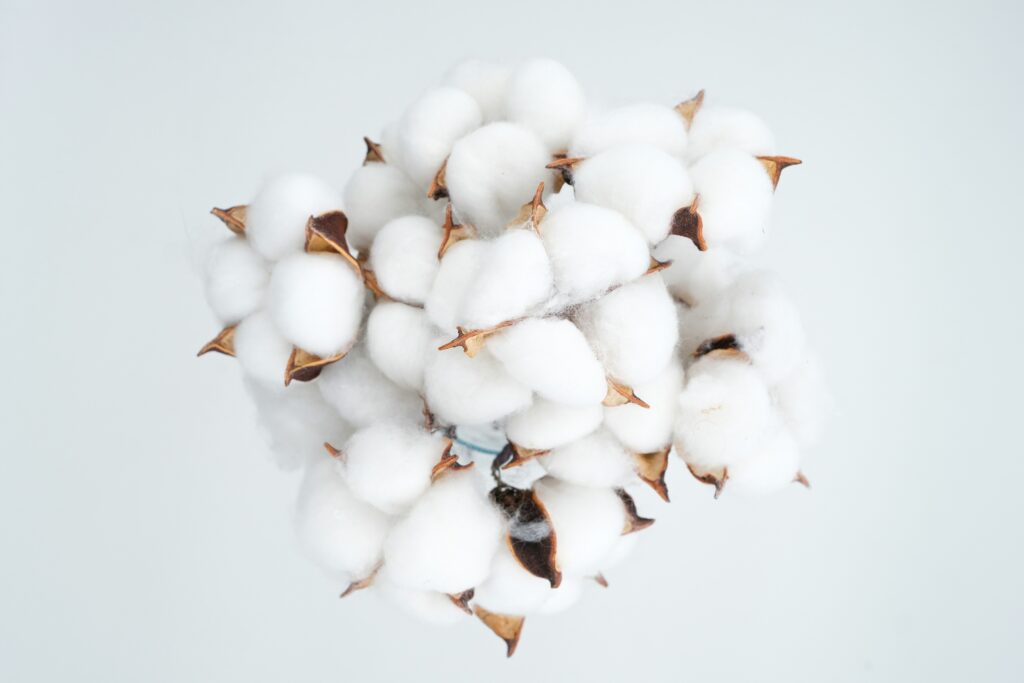World Cotton Day: a global celebration of cotton’s role in our lives
On October 7th each year, the world pauses to recognise a remarkable resource—cotton. Though it might seem like just another everyday material, cotton plays a pivotal role in industries, economies, and cultures around the globe. World Cotton Day, established by the World Trade Organization (WTO) in 2019, brings attention to this vital crop, acknowledging both its contributions and the challenges faced by those who cultivate it.
Cotton: a fiber that connects the world
For centuries, cotton has been a foundation of civilisation, with ancient cultures relying on it for their fabrics and trade. Today, cotton’s importance extends far beyond its agricultural roots. It’s an essential raw material in the textile industry, feeding a complex supply chain supporting millions of jobs worldwide.
In countries like India, China, and several African nations, cotton remains a crucial source of livelihood. It sustains smallholder farmers, many of whom rely on cotton production to support their families. Cotton isn’t just an economic commodity; it’s also a symbol of survival and opportunity in these regions.
The Cotton-4 countries—Benin, Burkina Faso, Chad, and Mali—are among the top producers of cotton in the world. However, despite their significant contributions, they struggle with barriers to market access, pricing issues, and trade inequities. World Cotton Day advocates for these nations, highlighting the urgent need for better global trading conditions and support for developing countries.
Beyond the fields: the impact of cotton on global economies
Cotton is much more than a fabric. Its cultivation and processing touch nearly every corner of the world, making it a truly global commodity. As raw cotton moves from farm to factory, its journey generates employment at every stage—from harvesting and ginning to spinning and weaving. Each step in this process provides jobs, often in areas where opportunities can be scarce.
Countries that rely heavily on cotton production, particularly in Africa and Asia, benefit from the economic boost it brings to rural and urban populations. Cotton accounts for billions of dollars in global trade, making it a crucial factor in the economies of these nations. Yet, the rewards aren’t always evenly distributed. That’s why World Cotton Day aims to raise awareness of the inequalities in the cotton supply chain and advocate for fair trade practices.
The challenge of sustainability
While cotton is a natural and renewable resource, its cultivation can have significant environmental impacts. The crop is water-intensive and often requires pesticides and fertilizers, which can degrade soil quality and contribute to pollution. Additionally, cotton production has been linked to water scarcity in some regions, where irrigation practices can strain local water supplies.
Sustainability in the cotton industry is more critical than ever. Initiatives like the Better Cotton Initiative (BCI) and Fairtrade Cotton are working to promote more eco-friendly and socially responsible farming practices. These programs aim to reduce the environmental footprint of cotton production while ensuring that farmers receive fair wages and work in safe conditions.
Organic cotton, grown without synthetic chemicals, is another step toward sustainability. By choosing organic cotton, consumers can help support a farming system that promotes soil health, conserves water, and reduces the use of harmful chemicals. As demand for sustainable fashion grows, the cotton industry is evolving to meet the challenge.

Empowering cotton farmers
Cotton farming remains a critical source of income for millions of people, particularly in developing countries. However, many smallholder farmers face significant challenges, including fluctuating market prices, lack of access to modern technologies, and the impacts of climate change.
World Cotton Day provides an opportunity to address these issues and highlight the importance of empowering cotton farmers. By investing in better farming practices, infrastructure, and technology, the global cotton industry can help farmers increase productivity while reducing their environmental impact.
The day also serves as a platform for governments, organizations, and businesses to discuss ways to support cotton farmers through more equitable trade policies, access to markets, and capacity-building initiatives.
Cotton’s cultural legacy
Cotton has long been a part of the cultural fabric of societies around the world. From the iconic cotton textiles of ancient Egypt to the handwoven fabrics of India and Africa, cotton has played a central role in the history of human civilization. Its versatility and comfort make it a preferred material for everyday clothing and high fashion.
In many regions, traditional cotton garments are deeply intertwined with cultural identity. The vibrant handwoven cotton fabrics of West Africa, for example, are not just clothing but symbols of heritage and community. World Cotton Day celebrates this rich cultural legacy, reminding us of cotton’s importance as a commodity and a medium of artistic and cultural expression.
The future of cotton: looking ahead
As the world continues to face challenges like climate change and social inequality, the future of cotton will depend on how well the industry adapts to these changing conditions. Sustainable farming practices, technological innovations, and fair trade policies will ensure that cotton continues to provide livelihoods and improve living conditions for people worldwide.
World Cotton Day is more than just a celebration of fibre. It’s a call to action for the global community to support sustainable, inclusive growth in the cotton industry. By coming together to address the challenges facing cotton farmers, traders, and manufacturers, we can ensure that cotton remains a source of economic empowerment and cultural expression for future generations.
This October 7th, let’s recognize cotton’s profound impact on our lives, economies, and cultures—and commit to building a more sustainable and equitable future for this incredible crop.



